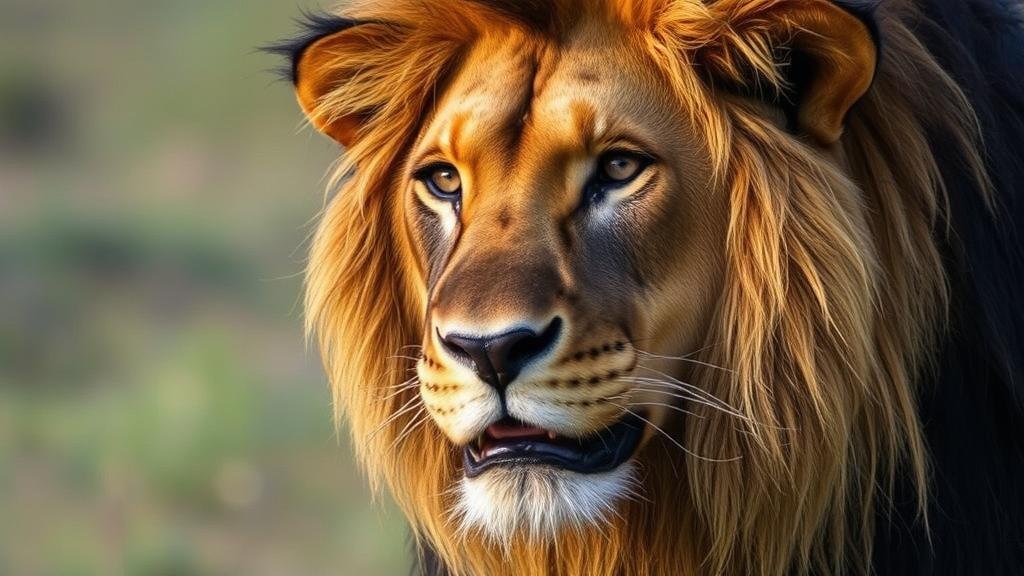Searching for the mythical “black lion” in African legends and wildlife reserves.
The Mythical Black Lion: A Journey through African Legends and Wildlife Reserves
For centuries, the black lion has captivated the imaginations of people across Africa and beyond. Often depicted in folklore and myth, this elusive creature is said to symbolize strength, power, and mystery. In this article, we will explore the origin of the black lion legend, its implications in African culture, and the search for its existence in wildlife reserves.
The Origins of the Black Lion Legend
The black lion is predominantly associated with various African cultures, notably in regions such as South Africa and East Africa. Within the Zulu culture, for instance, the black lion is considered a powerful totem, symbolizing bravery and valor in battle. Legends speak of warriors who would wear lion skins in honor of their spirit, drawing courage from these majestic beasts.
Interestingly, the concept of a black lion may also stem from historical records of melanism in lions. While melanism–where an animal has an excess of black pigmentation–has been noted in various species, true black lions as described in myth may never have existed in reality. Nonetheless, this has not deterred the fascination surrounding this enigmatic creature.
Although black lions may not physically exist, their legend endures in wildlife conservation efforts, particularly in notable reserves such as Kruger National Park in South Africa and the Serengeti in Tanzania. Here, the focus is placed on the conservation of lions and their ecosystems.
According to the African Wildlife Foundation, the lion population across Africa has significantly decreased by approximately 43% since the early 1990s, primarily due to habitat loss and human-wildlife conflict. This alarming decline urges conservationists to examine all variations of the species, including the potential impact of black lions in tourism and local culture.
Searching for the Black Lion: A Wildlife Adventure
Traveling through Africa in search of the mythical black lion could be a thrilling expedition, despite the knowledge that one may not find the creature itself. Instead, emerging from this journey are the rich cultural stories and the opportunity to witness the magnificence of lions in their natural habitat.
Visitors to reserves like Masai Mara or Chobe National Park engage in safari tours that often include:
- Guided wildlife tours led by experienced rangers.
- Night drives to observe hunting behaviors of various species.
- Cultural experiences with local tribes that share stories of the black lion legend.
Notably, Rwandas Akagera National Park has seen a return of lions after decades of absence, reminding us that the lion’s presence, whether black or golden, is crucial for the ecosystem. By involving local communities in conservation efforts, the legends surrounding lions can be preserved, fostering a deeper respect for wildlife.
Real-World Applications of the Legend
The legend of the black lion is not only rooted in African history but serves practical purposes in the present day. It offers insights into:
- The importance of cultural heritage in conservation strategies.
- The potential for eco-tourism to support local economies while promoting wildlife protection.
- The role of storytelling in fostering a connection with nature, particularly among younger generations.
Conclusion: The Enduring Legacy of the Black Lion
The search for the mythical black lion unveils more than just an elusive animal; it highlights the intricate ties between culture, conservation, and the environment. While the creature may exist primarily in folklore, its significance in African heritage brings awareness to the challenges facing the lion species today.
As we appreciate the narratives surrounding the black lion, we are reminded of our shared responsibility to protect the vibrant ecosystems that harbor the golden kings of the savannah. So, embarking on a journey to explore the legends, whether real or imagined, can lead to a deeper understanding and appreciation of Africas remarkable wildlife.


